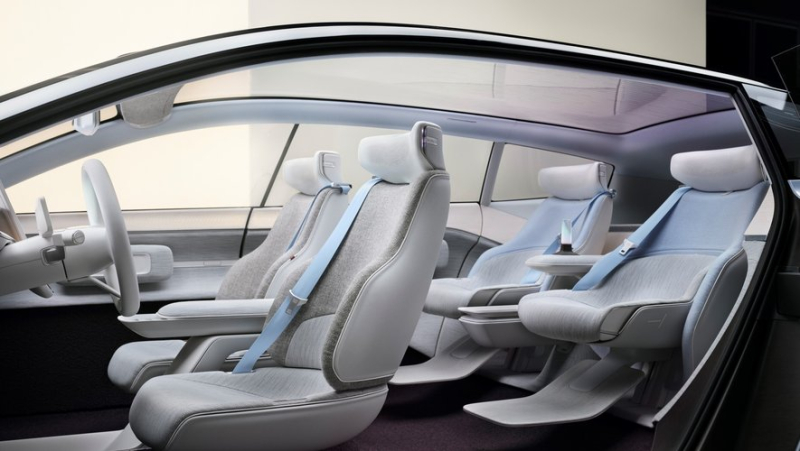Volvo, Renault, Peugeot… more and more car manufacturers are offering vegan interiors

Il n'est plus rare de trouver des intérieurs de voitures (ici le concept Recharge de Volvo) constitués de matériaux durables, tant naturels que recyclés. Courtesy of Volvo
Les constructeurs automobiles sont de plus en plus nombreux à adopter des intérieurs entièrement végans, sans cuir ni laine, selon une étude publiée par l'association PETA.
An interior can be considered vegan if it contains absolutely no materials of animal origin, such as leather or wool. This applies to the seats as well as the upholstery and even the steering wheel.
In this area, Volvo can be considered a pioneer with, from 2021, the first interiors based on textiles made from recycled materials such as plastic bottles or even wine corks. Today, the Swedish manufacturer (which now belongs to the Chinese group Geely) offers a vegan interior as a standard version on its EX30, EX40, EC40, S60 and V60. Another manufacturer particularly involved in the vegan cause, Mercedes-Benz also offers a vegan interior on the majority of its catalog, namely the Class A, the Class B, the Class C, the Class E, but also the GLC, GLE, GLS, EQB and EQE.
French manufacturers are not left out, Renault (Twingo, Clio, Captur, Mégane and Scenic), Peugeot (mainly utility vehicles) and Citroën (Ami, C3 and some utility vehicles) also offering a vegan interior on an increasingly wide range of their models. The other good students are Dacia, Fiat, Jaguar Land Rover, Jeep, Kia, Mini, smart and Opel. Even the Chinese BYD is getting into it, even if it's the only one at the moment. Note that the offer may however vary from one country to another, the availability of vegan interiors is therefore not always guaranteed.
35 million cows used each year
On the other hand, many manufacturers still do not have a single vehicle in their catalog with a vegan interior. This is particularly the case for many sports or luxury brands, such as Audi, Bentley, Bugatti, BMW, Ferrari, Porsche and Rolls-Royce.
According to PETA estimates, 35 million cows are used each year to create interiors for the automobile industry. For the famous association, the production of material of animal origin is as harmful to the Earth as it is cruel to animals. Ultimately, vegan fabrics have a much lower ecological footprint and are for the most part durable and perfectly resistant. Most of them are made from recycled materials, such as fishing nets, T-Shirts, plastic or cork.
To conduct its study, the People for the Ethical Treatment of Animals (PETA) association surveyed 110 automobile manufacturers from the United States, China, Europe, from India and Japan, about the vegan editions and models that they offer or not today. The majority of American and Chinese manufacturers unfortunately did not respond to their request.




